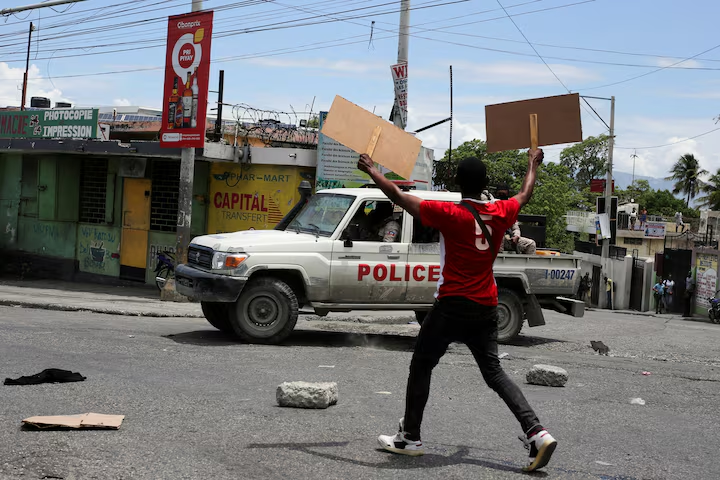U.S. Secretary of State Marco Rubio has announced a new measure that could see the deportation of certain lawful permanent residents from the United States, citing alleged support for Haitian gang leaders linked to a U.S.-designated terrorist organisation.
In a statement released on Monday, Rubio said Washington had determined that some green-card holders had collaborated with gang figures connected to Viv Ansanm, an armed alliance that now controls large portions of Haiti’s capital, Port-au-Prince. The Trump administration classified Viv Ansanm as a Foreign Terrorist Organisation in May.
Rubio noted that this determination enables the U.S. Department of Homeland Security to pursue the deportation of those involved. However, he did not specify how many individuals may be affected, nor did he name any suspects beyond a single case.
Later on Monday, the Department of Homeland Security confirmed that Immigration and Customs Enforcement (ICE) agents had arrested Pierre Reginald Boulos, a U.S. green-card holder and Haitian national, for allegedly contributing to violence and instability in Haiti. According to the Miami Herald, Boulos, 69, is an American-born physician, entrepreneur, and a politically influential figure in Haiti.
The announcement reflects the Trump administration’s broader strategy to ramp up deportations and fulfil its hardline immigration agenda. Secretary Rubio has been particularly assertive in wielding his authority to revoke the visas and residency of individuals seen as threats to U.S. national security or public order. This includes his recent controversial move against pro-Palestinian student protesters.
“The United States will not allow individuals to enjoy the benefits of legal status in our country while they are facilitating the actions of violent organisations or supporting criminal terrorist organisations,” Rubio stated.
Stephen Yale-Loehr, a retired professor of immigration law at Cornell University, described the move as highly unusual, noting that such actions were rare before this administration. He questioned the long-term impact of the policy, especially in terms of legal proof and enforcement.
“Three years from now, how many people from Haiti will be deported under this ground? I think very few,” Yale-Loehr remarked.
Haiti’s transitional government has yet to respond to the development. The announcement comes amid escalating gang violence in the country, with nearly 5,000 people killed between October 2024 and June 2025, according to the U.N. High Commissioner for Human Rights.
The situation continues to raise international alarm, as the humanitarian crisis in Haiti deepens and questions swirl about how deportations could affect both U.S. immigration policy and Haitian stability.



